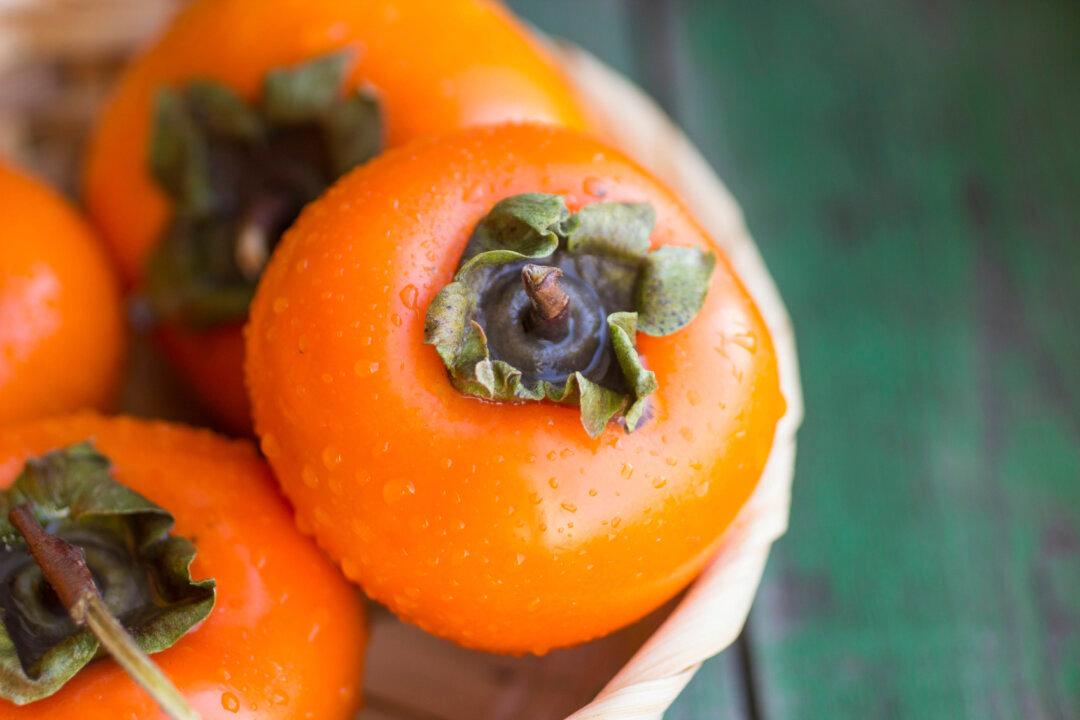It’s too bad Americans aren’t more familiar with persimmons, since its botanical name means “food of the gods.” Highly adaptable to various climate conditions, those found in larger grocery stores are most likely Japanese persimmons. Persimmon is Japan’s national fruit, although it’s said to be native to China (American persimmons are mostly ornamental).
Persimmon seeds first came to the United States when commodore Matthew Perry sent them from Japan in 1856. Today, persimmons are grown in a plethora of varieties in China, Burma, Northern India and Australia. In the U.S., it grows in Southern and Southwestern states, predominantly California.






